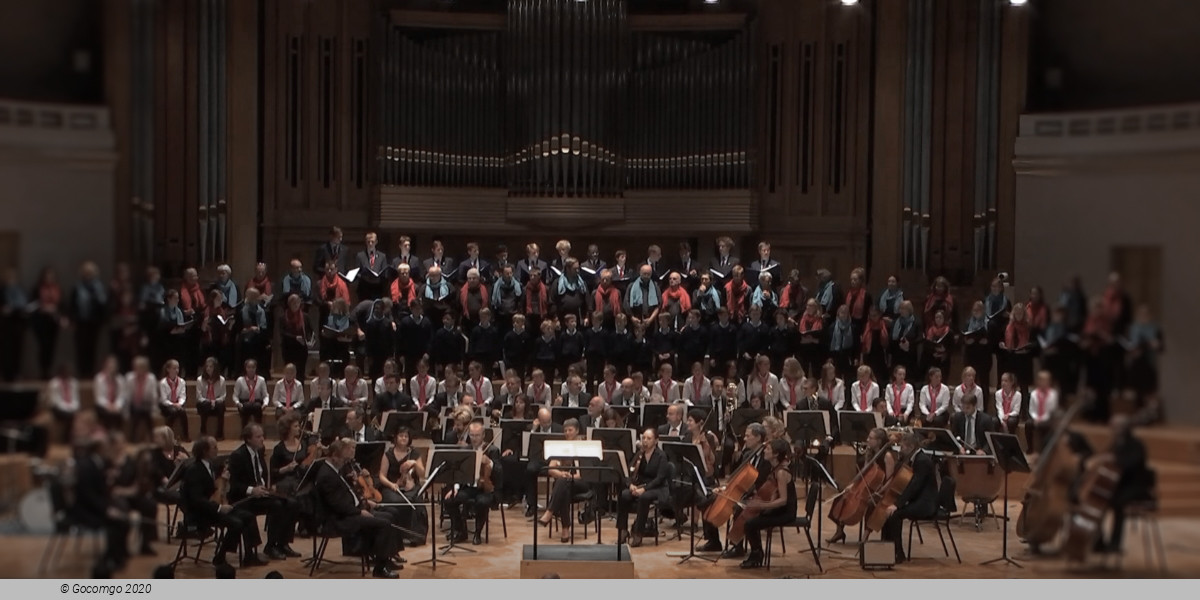BOZAR - Centre for Fine Arts. Henry Le Boeuf Hall (Brussels, Belgium)
BOZAR - Centre for Fine Arts. Henry Le Boeuf Hall

The Centre for Fine Arts (French: Palais des Beaux-Arts, Dutch: Paleis voor Schone Kunsten) is a multi-purpose cultural venue in Brussels, Belgium. It is often referred to as BOZAR (a homophone of Beaux-arts) in French or PSK in Dutch.
The building was designed by the architect Victor Horta and completed in 1929 at the instigation of the banker and patron of the art Henry Le Bœuf. It includes exhibition and conference rooms, a cinema, and a concert hall, which serves as home to the National Orchestra of Belgium.
Since 2002, the Belgian federal intuition has chosen the brand name BOZAR, which has eight artistic departments: BOZAR Expo, BOZAR Music, BOZAR Cinema, BOZAR Dance, BOZAR Theatre, BOZAR Literature, BOZAR Studios, and BOZAR Architecture. BOZAR is home to the National Orchestra of Belgium, the Société Philharmonique/Philharmonische Vereniging, which invites the world's major orchestras and performers to appear at Le Boeuf Hall. The finals of the Queen Elisabeth Music Competition are also held there. Up to 10 exhibitions, a year are organized at BOZAR, and have included Jeff Wall, Luc Tuymans, Frida Kahlo, Lucas Cranach, Gilbert & George, Wim Delvoye, Venetian, Flemish Masters, Keith Haring, and "It's not only rock'n'roll Baby".
The main stage of the BOZAR - Centre for Fine Arts is the Henry Le Boeuf Hall. Since its inauguration on October 19th, 1929, the Henry Le Boeuf Hall has hosted the greatest musicians of the 20th century: Mengelberg, Horowitz, Rachmaninov, Walter, Menuhin, Stokowski, Prokofiev, Stravinsky, and many others.
Regarded as one of the five best concert halls in the world for its acoustic qualities, it was completely renovated in 2000. It has 2,100 seats on four levels, which allows every member of the audience to see and hear perfectly.
Up to 200 artists can perform on its platform, which can be transformed, utilizing special equipment, into a stage for theatre or ballet productions; a mobile proscenium can be used to extend it.
Although its primary function is as a concert hall, the Henry Le Boeuf Hall is in fact multi-purpose and is suitable for all sorts of large-scale and prestigious events.


